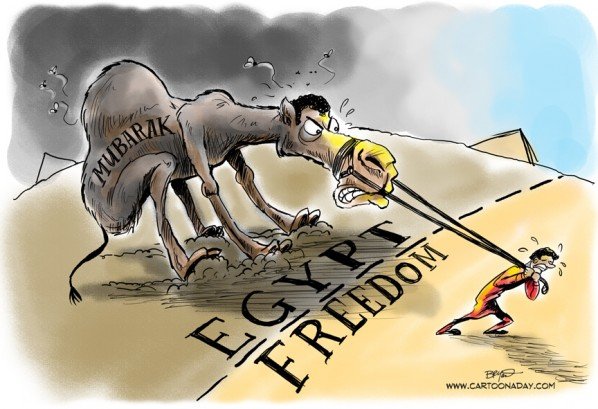Issue 23, winter/spring 2017 https://doi.org/10.70090/DI17BD25 Abstract This case study highlights an experiment that aimed to disrupt traditional television news production and presentation models in post-revolution Egypt. It is a snapshot of a brief moment in Egyptian television history when an attempt was made at innovating news production and content, but …
Read More »ISIS’s Euro-American Fighters: Western Failures and the Narratives of Denial
This article centers on the influx of Western fighters joining ISIS and locates its root causes in systemic and structural forms of alienation, discrimination, and Islamophobia. In Western discourse, understanding this phenomenon is characterized by a sense of denial that limits the interpretive paradigms to one of two approaches: either a racial discourse that confines the debate to antagonistic minoritized citizens with ambiguous loyalties and an inherent vulnerability for radicalism, or the powerful “glamour” of ISIS’s propagandist spectacles that western media cannot dispel.
Read More »Threat of the Downtrodden: The Framing of Arab Refugees on CNN
After September 11, 2001 Arabs and Muslims became the topic of interest for the global media, drawing attention from news outlets worldwide. Recently, the rise of the Islamic State in Iraq and Syria (ISIS) along with civil wars in the Arab region have forced hundreds of thousands of Arab citizens, particularly from Syria and Iraq, to flee their homelands. The resulting refugee crisis drew substantial attention and debate. Therefore, studying the framing of Arab refugees and asylum seekers in the global media is of notable significance, especially in connection to ISIS, the war on terrorism, and the upheaval in the Middle East.
Read More »Social Media in Syria’s Uprising and Post-Revolution Libya: An Analysis of Activists’ and Blogger’s Online Engagement
Masudul Biswas and Carrie Sipes perform a comparative content analysis of Twitter and Facebook posts from a sample of Syrian and Libyan activist groups. By considering online content in the context of post-revolution Libya and the continuing upheaval in Syria, the authors shed new light on online activist agenda-setting. They find that while social media is used as a tool to maintain and expand momentum during revolution, in a post-revolution climate the same media serves as a venue for idea-sharing and political discourse.
Read More »Digital Activism: Efficacies and Burdens of Social Media for Civic Activism
In a comprehensive study of social media usage among social movement organizations in Lebanon, Jad Melki and Sarah Mallat investigate the efficacy of digital technology as a tool for activism. The authors find that while social media platforms offer a number of perceived benefits to activism work, there remain significant obstacles that manifest both on and offline.
Read More »The Discourse of Egyptian Slogans: from ‘Long Live Sir’ to ‘Down with the Dictator’
El Mustapha Lahlali investigates the power of political slogans in Egypt. By revisiting the discourse of early 2011 and surgically analyzing the linguistic content of a wide array of slogans, Lahlali offers new insight into the political, social and religious undercurrents that reverberated through the country during this time. Lahlali points to a period characterized by the democratization of discourse, which he argues, disappeared as rapidly as it emerged.
Read More »Mubarak Framed! Humor and Political Activism before and during the Egyptian Revolution
In an entertaining and insightful read, Deepa Anagondahalli and Sahar Khamis delve into the world of Egyptian political humor, unpacking its historical roots and reflecting on its evolution from private banter to public resistance. Focusing on Mubarak’s presidency and subsequent ouster, the authors identify a stark shift from long narrative jokes, to the biting “weaponized” one-liners that emerged in his final days. Humor, they conclude, is a paradoxical yet powerful tool for activism, which despite more recent crackdowns has proven to be a relatively safe platform for dissent.
Read More »Navigating the Ethics of Citizen Video: The Case of a Sexual Assault in Egypt
Using video of a sexual assault in Tahrir Square as a case study, Madeleine Bair discusses the ethical and logistical considerations of citizen video as a means for social documentation. Bair points to the emergent challenges including reliability, consent, preservation and security, as citizen videos are sourced with increasing regularity by both new and traditional media. The Egyptian video, which sparked national change and international outrage, is a striking example of how citizen video can both shine light on an issue and stir controversy.
Read More »The Debate Over Al Jazeera English in Burlington, VT.r
William Youmans analyzes the debate in Burlington, Vermont, over whether the local cable TV company should or should not carry Al Jazeera English. He concludes that Burlington was a special case, rather than the harbinger of a breakthrough into the US market for AJE.
Read More »The Appeal of Sami Yusuf and the Search for Islamic Authenticity
A quick glance at the top 40 most requested songs on the Web site for the popular Arabic music video channel Melody Hits TV reveals the latest and greatest from stars such as Lebanon’s Nancy Ajram—infamous for her sexually suggestive videos—as well as others like America’s rapper Eminem and Egypt’s crooner Tamer …
Read More » Arab Media & Society The Arab Media Hub
Arab Media & Society The Arab Media Hub





